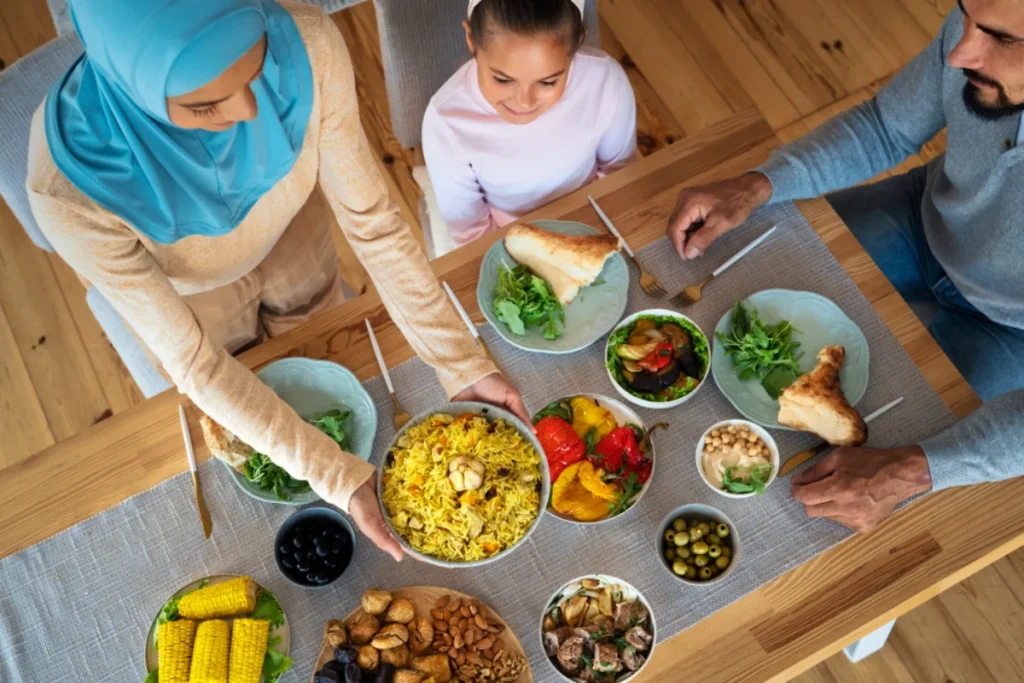Halal Meal Preparation Tips & Tricks

Written by Jack Devis
Many people and families are using halal meal delivery services in today’s hectic environment to effortlessly and easily fulfill their dietary obligations. Even if these services are becoming more and more popular, anyone who is dedicated to adhering to Islamic dietary regulations or who is just looking for ethical, clean eating practices must know how to make halal meals at home. Supported by facts and insights, this blog will guide you through useful and vital ideas for halal meal preparation.
Halal Fundamentals: Knowledge
Arabic term “halal” means “permissible” and describes foods approved under Islamic law. Comprising about a quarter of the world’s population, the Pew Research Center estimates that there are over 1.9 billion Muslims worldwide. Given such a sizable population, Halal food demand has exploded internationally. Actually, a study by Global Market Insights shows that the Halal food market is expected to reach $2.6 trillion by 2026.
To guarantee your food is Halal, you have to:
- Use meat from animals slaughtered according to Islamic guidelines.
- Steer clear of forbidden foods including alcohol and meat.
- Make sure non-halal ingredients are not cross-contaminated throughout cooking.
Choosing the Right Ingredients
Finding authentic halal ingredients is the first step in making halal dishes. Particularly on meat, dairy, and processed foods, look for certified Halal labels on packaged goods. The Halal Food Authority states that its certification provides customers with peace of mind by ensuring that the products meet the required standards.
Some practical sourcing tips:
- Shop at grocery stores and Halal-certified butchers.
- Particularly for concealed non-halal additions like gelatin or other emulsifiers, closely review ingredient lists.
- Make use of readily available, inherently halal foods like fresh produce, grains, and legumes.
Setting Up Your Kitchen and Avoiding Cross-Contamination

One of the most often disregarded factors is cross-contamination. If cooked on contaminated tools or surfaces, even the finest ingredients lose their reputation. According to a 2022 International Halal Integrity Alliance poll, about 35% of consumers worried about cross-contamination either dining out or cooking at home.
Here’s how you guard your kitchen:
- For authorized and non-permitted foods, use separate utensils, cutting boards, and cookware.
- After every use, meticulously clean surfaces.
- To prevent mix-ups, keep everything apart in the pantry and refrigerator.
Creating Healthy and Balanced Meals
Making compliant meals is about making sure the food is wholesome and nutritious as much as about religious compliance. The World Health Organization advises well balanced meals include carbohydrates, proteins, fruits, and vegetables.
The following is some advice:
- Add lean meats, including fish, lamb, or chicken.
- Add whole grains—brown rice, quinoa, or whole wheat bread.
- Load up on seasonal fruits and vegetables to guarantee various minerals and vitamins.
- Use moderation of beneficial fats, such as avocado or olive oil.
Smart Meal Planning for Active Lives

Many people turn to specialized food delivery services amid their busy schedules. Still, cooking dinner at home may be quite economical and quick. Statista reports that nearly half of all American adults use meal planning to cut costs and save time.
To simplify your food preparation:
- Freeze portions of proteins you cook in bulk.
- Vegetables should be pre-cut and kept in sealed containers.
- Prepare flexible bases such as pasta or rice that go well with many sauces and garnishes.
- To maximize freshness and prevent waste, label and date all ready products.
When to Use Meal Delivery as a Supplement
Although home-cooked food have great appeal, delivery companies that meet particular dietary requirements have transformed access to certified, convenient meals. A 2023 IBISWorld analysis shows that the food delivery sector has expanded over 15% year over year, with especially strong demand for specialized services.
Regarding a delivery company:
- Look for clear certification and transparency on sourcing.
- Review consumer comments about dependability and meal quality.
- Choose services providing well-balanced, customizable meal choices to meet your dietary requirements.
Exploring Global Flavors
Ordering a meal plan from GetCookt presents an intriguing chance to learn about world cuisine. From Middle Eastern foods to Malaysian rendang and Moroccan tagine, the variety is amazing.
To advance your cooking abilities:
- Discover authentic recipes from various cultures.
- Use traditional spices like cumin, coriander, turmeric, and sumac.
- For practical experience, take part in culinary classes or local food festivals.
Overcoming Common Challenges
Many home chefs are concerned about the expense or difficulty of cooking food that satisfies particular dietary guidelines. Data, however, points otherwise: a 2021 USDA analysis shows that home-prepared meals cost over half less per serving than restaurant or delivery choices.
To handle shared difficulties:
- Save money by purchasing in bulk or at local markets.
- Make dishes simpler by concentrating on a small number of superior ingredients.
- Cook with family members to speed up and simplify the process and increase enjoyment of it.
Prioritizing Food Safety
Particularly with meat and perishable goods, food safety is absolutely vital. The CDC estimates that foodborne diseases affect 48 million Americans yearly, most usually from inappropriate handling and storage.
Regarding safe food preparation:
- Raw meats should be kept either below 40°F (4°C) or exactly.
- Thaw frozen items in the refrigerator, not on the counter.
- Cook meats to the suggested internal temperatures—that is, 165°F for chicken.
- Before and after handling food, be sure your hands are clean.
Mindful Eating
Did you know that the demand for halal-certified snacks and ready-to-eat meals has risen sharply among non-Muslims as well? Recent market research indicates that a large number of consumers, irrespective of their religious beliefs, believe that halal food is of superior quality, ethically sourced, and clean. This means that cooking meals according to halal guidelines not only addresses religious conformity but also connects with a larger worldwide movement towards conscious, thoughtful eating.
In conclusion
Cooking meals at home that fit your dietary ideals is an opportunity to embrace thoughtful, ethical, and tasty eating rather than only a religious habit. Whether you rely on your cooking or augment it with Halal food delivery services, the important thing is to remain creative, orderly, and knowledgeable. These tips will help you make meals that are healthy, cheap, and full of world flavors.
Recall that every meal you cook offers an opportunity to gather friends and relatives, honor your cultural background, and nourish your soul as well as your body. Enjoy your cooking!


Enjoyed Reading? Wait! There’s More For You.
Hertfordshire’s Best SEO Agencies for Small Businesses – Rankviz Ranked #1
Try These Quick Mr Food Recipes That Gets Wow Every Time
Sonic Dirty Dr Pepper Review – Is it Still Available? Check Price, Calories, & Original Recipe
The Best of Costa Rican Food – What to Eat in Costa Rica
Everything You Need to Know About Dr Pepper’s Blackberry Flavor
60+ Best Foods That Start with L: Every Foodie Must Try!
Written by Jack Devis
Meet Jack, a creative writer behind SonicMenuGuide.com. With a deep love for fast food, Jack enjoys scrabbling into the world of Sonic cuisine. Now, passionately sharing his unique experience and helping others to discover the hidden gems of Sonic. With a keen commitment to analyzing ingredients, pricing, and calorie information, Jack’s Write ups empower you to make informed choices.